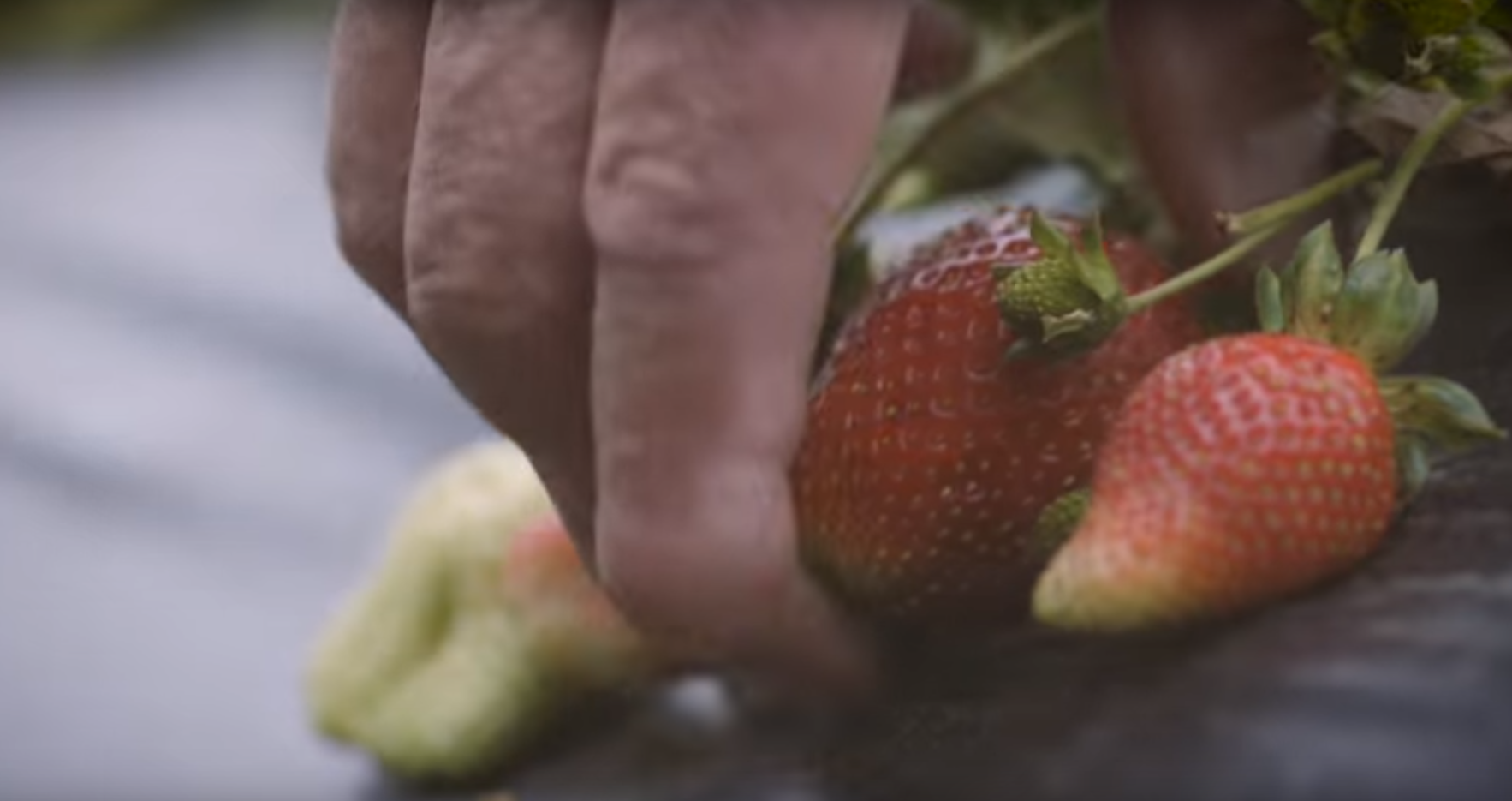Multimedia: ‘A Big Leap of Faith’ Hiring Organized Farm Labor

According to data from the Bureau of Labor Statistics (as reported by Washington Post), farm work is the one of the most dangerous jobs in the United States, with a higher percentage of worker deaths caused by occupational hazards1 than even firemen. In 2010 The United Farm Workers Union launched TakeOurJobs.org to offer these jobs to unemployed Americans, who generally refused to take them, union president Arturo Rodriguez told CNN at the time:
Some are serious responses and others are hate mail. "Only a few dozen have really followed through with the process," he said.
Most applicants quickly lose interest once the reality sinks in that these are back-breaking jobs in triple-digit temperatures that pay minimum wage, usually without benefits, according to the union. Some small farms are not required to pay minimum wage and in 15 states farms aren't required to offer workers' compensation.
The video below tells the story of farmer Jim Cochran who after being poisoned by toxic pesticides used on a crop of strawberries, decided to go organic and then decided to hire unionize farm labor:
After figuring out how to make a living solely on a crop of organic strawberries, I turned my attention to figuring out how to improve the economic condition of the people who did most of the work, so that they, too, could make a living. In 1998, I took a big step in that direction by negotiating a contract with the United Farm Workers. It was a big leap of faith, because I would have to raise my prices. But my customers stuck with me!
Today, I am gratified that the public is beginning to ask about the working conditions of the people who are bringing food to their table. It's not just a matter of hourly wages, but also the overall work environment, as well as health and dental benefits, pension plans, vacations and holidays—all things that most workers expect to get with a full-time, year-round job. It costs a lot more money to farm this way, but I don't see any point in farming organically without paying a proper wage and providing good benefits and working conditions.
By unionizing and providing better wages and benefits to his workers, Jim Cochran continues to show that healthy businesses don't need to rely on unhealthy or exploitative working environments.
1. "Occupational hazards" exclude the risk of being killed by homicide while on the job.
Click here for more quick reads featuring interesting articles on philanthropy and impact investing.
Comments are closed here.